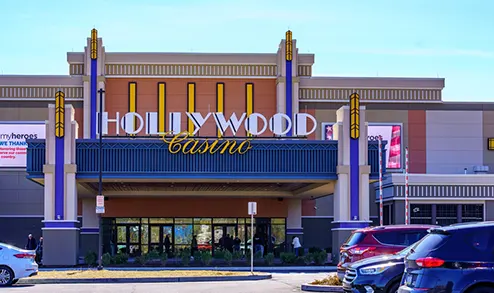 Hollywood Casino Morgantown and Lady Luck Nemacolin have received approval from the Pennsylvania Gaming Control Board (PGCB) to modify their gaming floors and reduce the number of slot machines. Hollywood Casino Morgantown is set to remove 30 slot machines from its gaming porch, leaving 117. Lady Luck Nemacolin has received permission to install 81 new slot machines and remove 100, owned by Churchill Downs.
Hollywood Casino Morgantown and Lady Luck Nemacolin have received approval from the Pennsylvania Gaming Control Board (PGCB) to modify their gaming floors and reduce the number of slot machines. Hollywood Casino Morgantown is set to remove 30 slot machines from its gaming porch, leaving 117. Lady Luck Nemacolin has received permission to install 81 new slot machines and remove 100, owned by Churchill Downs.
During the latest PGCB monthly meeting, representatives from Hollywood Casino Morgantown and Lady Luck Nemacolin asked the gambling watchdog for permission to modify their gaming floors. General manager Marc Guastella and legal representative Michael Fabius of Ballard Spahr told PGCB that Hollywood Casino Morgantown wants to remove 30 slot machines from its gaming porch because they had an occupancy rate of less than a third of other slot machines on the gaming floor and generated almost 75% fewer wins per unit per day than other games.
Hollywood Casino Morgantown has already removed 17 slots in January 2022 and another 15 in December, which led to a tax revenue increase of approximately $400,000 and $1 million in March 2023, respectively. The casino’s tax revenue is expected to continue growing, and the new reduction would bring the casino’s total number of machines to 697. Gaustella told PGCB that the reduction is unlikely to have a negative effect on the casino, which continues to grow every year. The gambling venue is to add non-gaming options to fill the space. Gaustella explained that there will be no layoffs.
Unregulated Skill Games to Be Blamed for Casinos Wishing to Reduce Their Number of Slots
Fabius and Lady Luck Nemacolin’s general manager, John Gibboni, also spoke at the meeting regarding the proposed changes to the gaming floor. Gibboni explained that Lady Luck Nemacolin wants to refresh its offerings by removing 100 slot machines, which are owned by Churchill Downs, and adding 81 new slots to its gaming porch. This means that the gambling venue will reduce the number of slot machines by 19.
Gibboni told the PGCB that more slots could be added following the redesign of the gaming floor. Lady Luck Nemacolin has been operating seven days a week since renewing its license in June and has several property renovations in the works. Lady Luck Nemacolin is expected to add a coffee bar and an entertainment area to its property. However, the staffing will not be affected.
In 2021, Hollywood Casino at Penn National Race Course and the Hollywood Casino at the Meadows also announced that they would reduce their total number of slot machines due to the proliferation of unregulated “skill games” across the Keystone State, which have negatively affected the industry. Casino officials also explained that the growing popularity of online gambling reduced the need for slot machines.
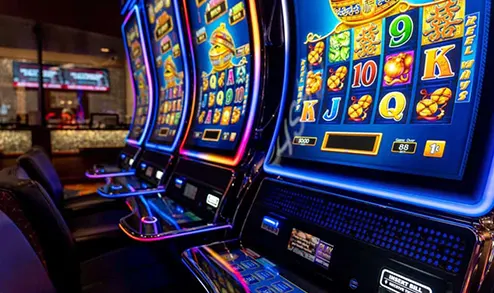 This April, the Department of Justice (DOJ) received a request from the gaming regulators of seven states to increase their efforts in investigating and prosecuting illegal offshore gaming websites that target domestic players. The Justice Department has responded by reaffirming its commitment to combat these illicit online gaming activities and has stated that it will continue to do so.
This April, the Department of Justice (DOJ) received a request from the gaming regulators of seven states to increase their efforts in investigating and prosecuting illegal offshore gaming websites that target domestic players. The Justice Department has responded by reaffirming its commitment to combat these illicit online gaming activities and has stated that it will continue to do so. 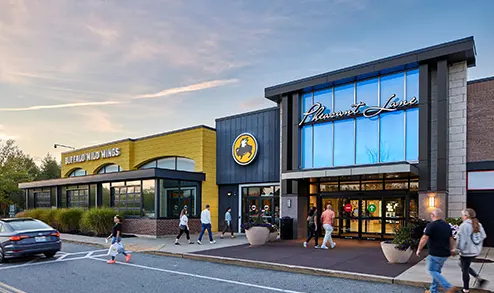 Nashua planners are to consider a proposed casino at Pheasant Lane Mall, which represents a potential transformation for the area. ECL Entertainment, in collaboration with Toronto-based private equity firm Clairvest, aims to transform a former Sears store into a 130,000-square-foot charitable gaming facility. The charitable gaming facility, slated to open by late 2024, will use the licenses that ECL obtained from its acquisition of The Lucky Moose Casino & Tavern and The River Casino & Sports Bar, also located in Nashua.
Nashua planners are to consider a proposed casino at Pheasant Lane Mall, which represents a potential transformation for the area. ECL Entertainment, in collaboration with Toronto-based private equity firm Clairvest, aims to transform a former Sears store into a 130,000-square-foot charitable gaming facility. The charitable gaming facility, slated to open by late 2024, will use the licenses that ECL obtained from its acquisition of The Lucky Moose Casino & Tavern and The River Casino & Sports Bar, also located in Nashua. 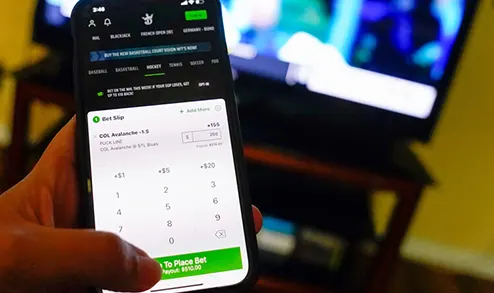 India’s Ministry of Information and Broadcasting has taken a significant step to address the proliferation of online gambling and betting in the wake of the upcoming Asia Cup and Men’s ODI Cricket World Cup. In a bid to protect the public from excessive exposure to gambling ads and safeguard the integrity of major sporting events, the Ministry has introduced new guidelines to prevent media agencies, online advertising intermediaries, and social media platforms from promoting online gambling.
India’s Ministry of Information and Broadcasting has taken a significant step to address the proliferation of online gambling and betting in the wake of the upcoming Asia Cup and Men’s ODI Cricket World Cup. In a bid to protect the public from excessive exposure to gambling ads and safeguard the integrity of major sporting events, the Ministry has introduced new guidelines to prevent media agencies, online advertising intermediaries, and social media platforms from promoting online gambling. 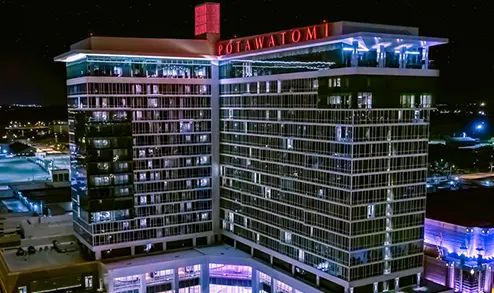 During the past 12 months, Potawatomi Casino’s revenue increased by just 1.7% in the face of emerging competition on the Illinois-Wisconsin border. Based on fees paid by the tribe to the city and county of Milwaukee, media agency Journal Sentinel calculated that the Potawatomi casino at 1721 Canal St. generated no less than $415 million in profits during the past year. Records show that the tribe generated a net win of around $395 million in the previous 12 months.
During the past 12 months, Potawatomi Casino’s revenue increased by just 1.7% in the face of emerging competition on the Illinois-Wisconsin border. Based on fees paid by the tribe to the city and county of Milwaukee, media agency Journal Sentinel calculated that the Potawatomi casino at 1721 Canal St. generated no less than $415 million in profits during the past year. Records show that the tribe generated a net win of around $395 million in the previous 12 months. Last week, the Pennsylvania Gaming Control Board (PGCB) reported four incidents of children being left unattended in vehicles outside casinos. Compared to previous data, it seems that the gambling watchdog is making progress in tackling the issue. However, board members announced that leaving children unattended outside casinos continues to be a major concern.
Last week, the Pennsylvania Gaming Control Board (PGCB) reported four incidents of children being left unattended in vehicles outside casinos. Compared to previous data, it seems that the gambling watchdog is making progress in tackling the issue. However, board members announced that leaving children unattended outside casinos continues to be a major concern. 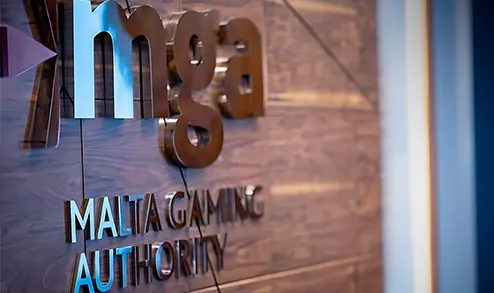 The Malta Gaming Authority (MGA) has defended Bill 55, which has become a point of contention because many EU commissioners believe it violates European law. According to the MGA, Bill 55, also known as Article 56A of Malta’s Gaming Act, does not violate European law. The amendment has been designed to protect MGA-licensed gambling operators from foreign liability. The regulation also stipulates that Maltese courts should reject the recognition or enforcement of any sentence or decision made by a foreign court.
The Malta Gaming Authority (MGA) has defended Bill 55, which has become a point of contention because many EU commissioners believe it violates European law. According to the MGA, Bill 55, also known as Article 56A of Malta’s Gaming Act, does not violate European law. The amendment has been designed to protect MGA-licensed gambling operators from foreign liability. The regulation also stipulates that Maltese courts should reject the recognition or enforcement of any sentence or decision made by a foreign court.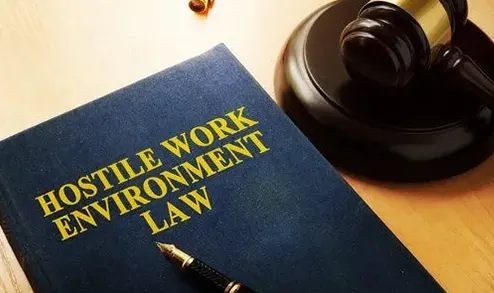 Several lawsuits have been filed against restaurants and casinos across Southern Nevada. The legal cases reveal alarming workplace issues, which require immediate action. The U.S. Equal Employment Opportunity Commission (EEOC) has announced that Nevada Restaurant Services Inc., Bouchon, Mariscos El Puerto, and La Catrina are among the businesses that face legal challenges.
Several lawsuits have been filed against restaurants and casinos across Southern Nevada. The legal cases reveal alarming workplace issues, which require immediate action. The U.S. Equal Employment Opportunity Commission (EEOC) has announced that Nevada Restaurant Services Inc., Bouchon, Mariscos El Puerto, and La Catrina are among the businesses that face legal challenges.  This Monday, Councilor Tracye Whitfield, chairperson of the City Council’s finance subcommittee, announced that councilors approved funding an investigation into the relationship between drunk driving and casinos. Money for the investigation will come from the Community Mitigation Fund, managed by the Massachusetts Gaming Commission.
This Monday, Councilor Tracye Whitfield, chairperson of the City Council’s finance subcommittee, announced that councilors approved funding an investigation into the relationship between drunk driving and casinos. Money for the investigation will come from the Community Mitigation Fund, managed by the Massachusetts Gaming Commission. 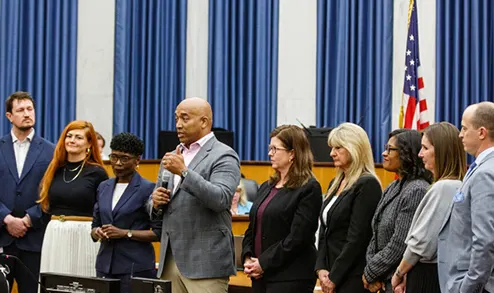 A Richmond Circuit Court judge has rejected a recent legal challenge seeking to prevent a second casino referendum from being held this November. Last month, the non-profit organization Lodge No.1 of the Good Lions filed a legal challenge, raising concerns about the potential negative impact of the casino on their fundraising efforts.
A Richmond Circuit Court judge has rejected a recent legal challenge seeking to prevent a second casino referendum from being held this November. Last month, the non-profit organization Lodge No.1 of the Good Lions filed a legal challenge, raising concerns about the potential negative impact of the casino on their fundraising efforts.